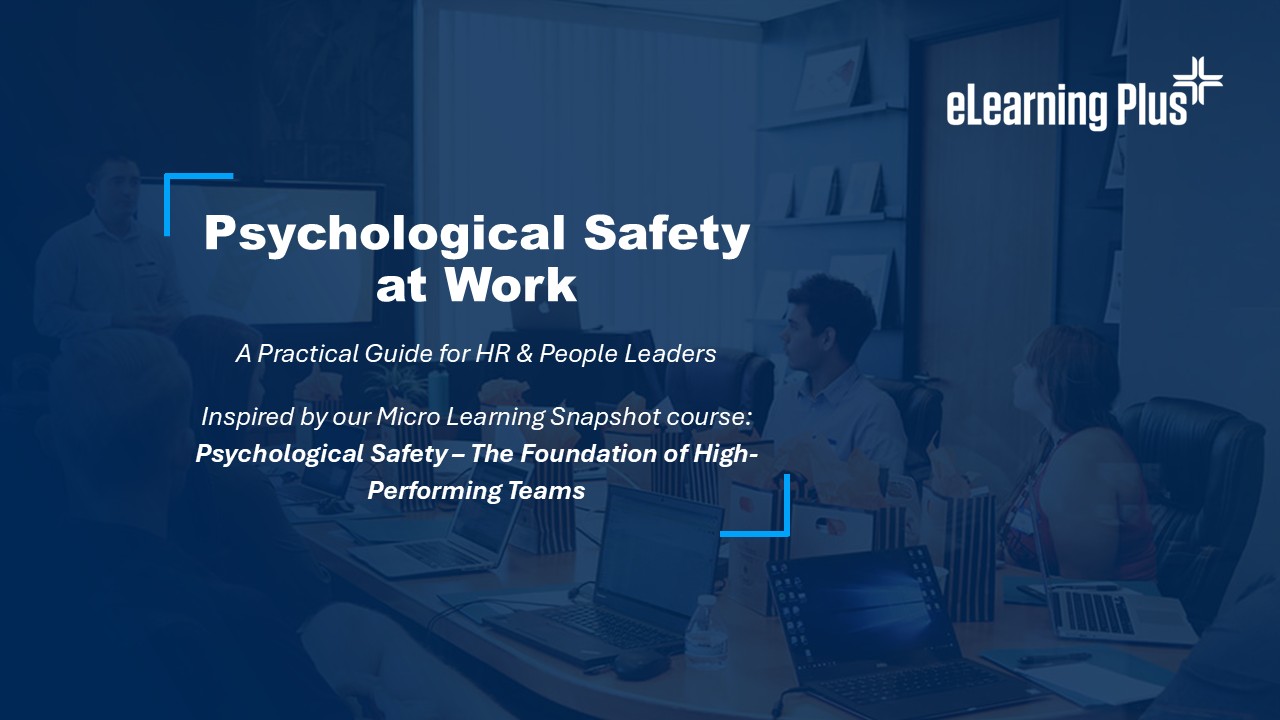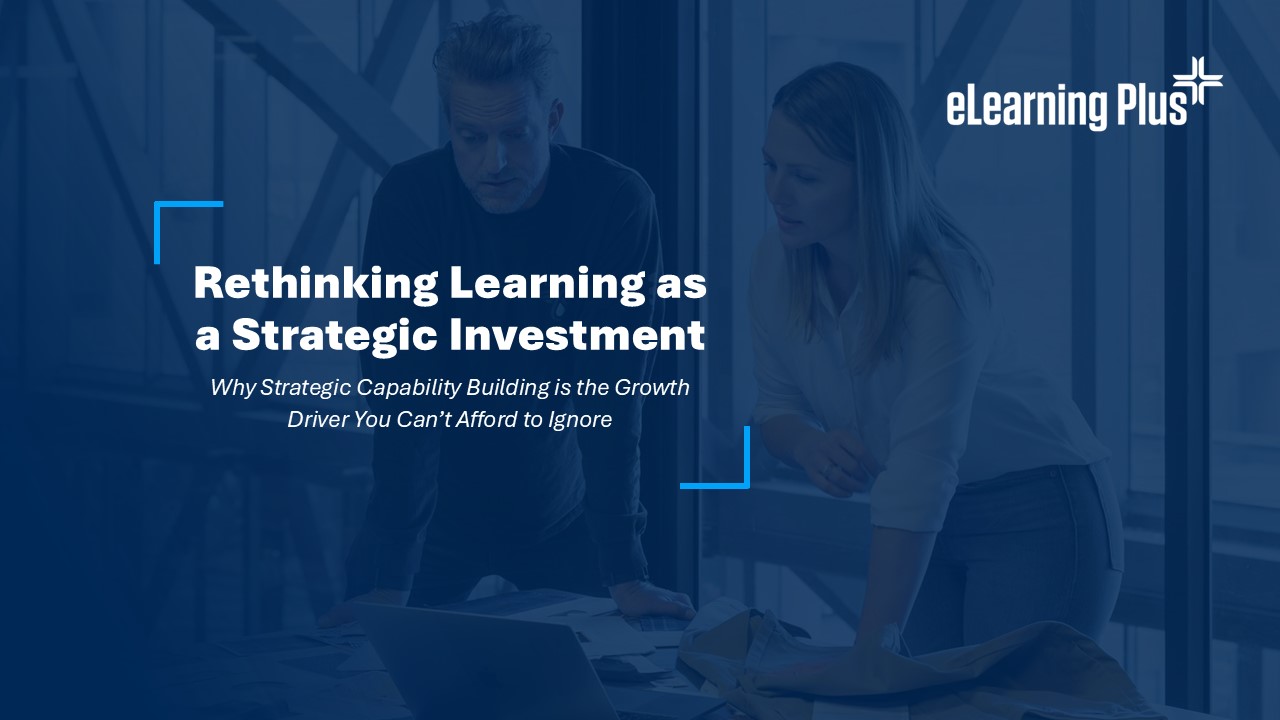What’s New in eLearning?
As the eLearning industry continues to evolve, staying abreast of the latest trends and technological advancements is crucial for those involved in people development.
Here’s a roundup of the most significant recent developments and what they could mean for your learning strategies.
Rapid Growth of AI in Learning
Artificial Intelligence (AI) is transforming eLearning, from personalised learning paths to AI-driven analytics that help in measuring the effectiveness of training programmes. Innovative tools are now capable of providing real-time feedback to learners, adapting content difficulty based on learner performance, and even predicting future learning outcomes. Organisations that leverage these AI capabilities could see significant improvements in learning efficiency and retention rates.
Emphasis on Soft Skills Training
There is a notable shift towards emphasising soft skills training, alongside technical skills development. As automation and AI take over more routine tasks, soft skills such as critical thinking, communication, and leadership are becoming the differentiators in the workforce. eLearning platforms are increasingly incorporating courses focused on these skills, often using interactive based learning to enhance engagement.
Sustainability in eLearning
Sustainability is becoming a key concern in all sectors, including training. More eLearning platforms and content creators are looking to minimise their environmental impact, promoting practices such as digital-only materials, optimising energy usage for server operations, and encouraging remote learning, which reduces travel and paper consumption.
Regulation and Standardisation
As eLearning becomes more prevalent, there are increasing calls for regulation and standardisation to ensure the quality and accessibility of online education. This includes setting minimum standards for course content, accessibility features, data protection, and more. Keeping an eye on these regulatory developments will be important for all eLearning providers to ensure compliance and maintain high standards. By way of example, we have over 100 CPD certified online courses.
Growing Popularity of Pre-Built eLearning Courses
Pre-built eLearning courses are increasingly used for their ability to deliver consistent training across organisations efficiently and cost-effectively. These courses minimise the time and expense associated with developing custom content from scratch. They offer standardised training that ensures every employee, regardless of location, receives the same educational benefits. Furthermore, pre-built courses can be deployed rapidly, making them ideal for swiftly addressing emerging training needs or onboarding new employees. With scalability and flexibility built-in, these courses allow organisations to fast-track the learning needs of their employees.
Virtual Reality (VR) and Augmented Reality (AR) Integration
The integration of VR and AR into eLearning environments is providing immersive learning experiences that were not possible before. These technologies are particularly effective for training in complex physical tasks or procedures, as well as in environments that are dangerous or inaccessible. As hardware becomes more affordable, expect to see more widespread adoption of VR and AR in training programmes.
Staying informed around learning trends can help you adapt your learning and development strategies to meet the demands of the modern workplace. By incorporating these innovations and insights, you can enhance the effectiveness of your training programmes and better support your organisation’s learning goals.






